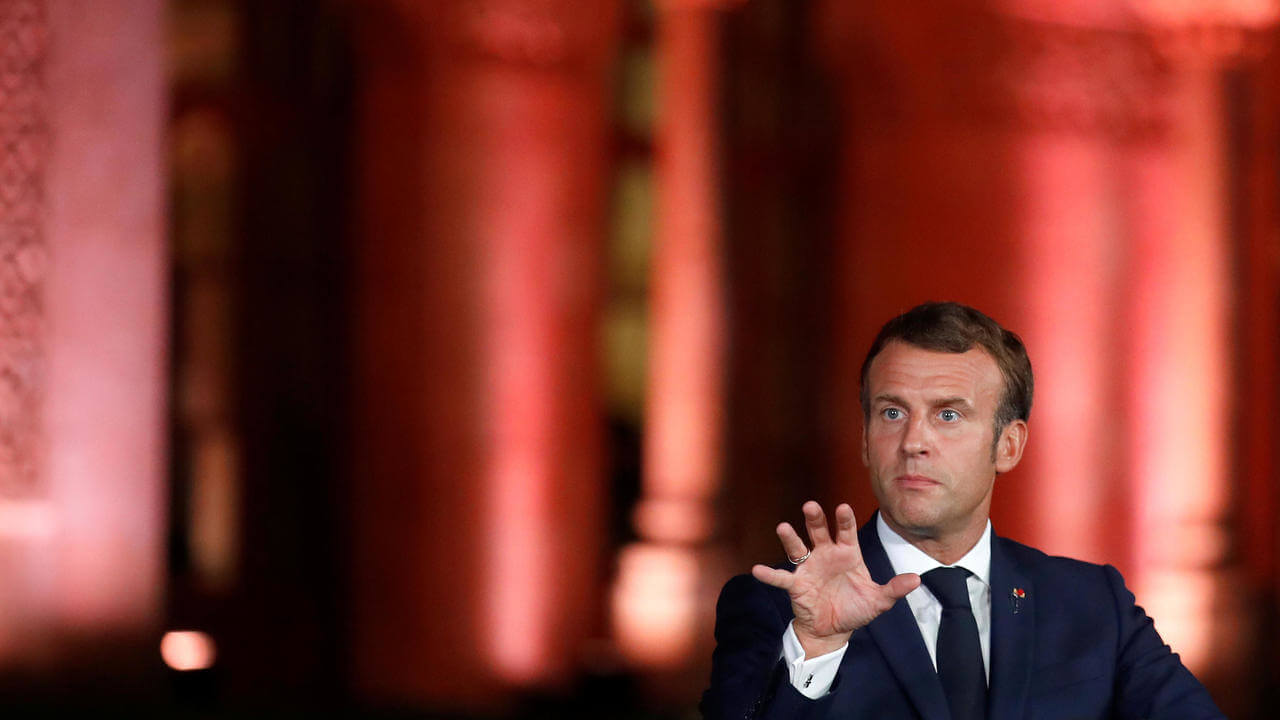French President Emmanuel Macron on Wednesday announced a World Bank-hosted humanitarian fund for Lebanon, which he said will circumvent the ostracised central government and go directly to the Lebanese people and trusted NGOs.
The multi-donor trust fund was presented at the second iteration of ‘The Conference to Support Beirut and the Lebanese Population’, organized by the United Nations (UN) and France, which was first held on August 9 following the devastating explosion in Beirut. The fund will be handled by the World Bank, the UN, and the European Union under the 3RF (Reform, Recovery, Reconstruction) framework and will provide support to the country in various sectors, including food, healthcare, education, as well the reconstruction of the Port of Beirut.
The August tragedy destroyed large parts of the capital, killing 200 people and injuring nearly 6,500. The blast also deepened Lebanon’s already severe economic crisis, as it struggles with staggering inflation and rising rates of unemployment and poverty rates. The Lebanese pound has lost approximately 80% of its value against the US dollar to date, and the COVID-19 pandemic, coupled with political turmoil, is only threatening to make the situation worse. Further, the World Bank released a grim report on Tuesday, stating that the country was in for a prolonged and “deliberate depression” due to inaction by the country’s political and financial authorities.
32 countries, 12 international organisations, and seven Lebanese civil societies participated in the conference on Wednesday, which allowed for states to reaffirm their commitment to help the Lebanese people and to discuss the humanitarian response to the crisis and efforts towards early recovery. Macron again called for the rapid formation of a new Lebanese government and stressed that it must commit to implementing the reforms as discussed by the country’s major political forces and the French leadership in September.
“These commitments, as of today, have not been kept. Nothing shows so far that it was more than words,” Macron said. “This road map is unavoidable and it is in Lebanon’s vital interest. It is also the demand of the Lebanese people.” Macron added that he would return to the country in December to keep up the pressure, and stressed that without reforms, international economic help would not be made available to the country.
Lebanese President Michel Aoun welcomed the unveiling of the fund, saying that it was desperately needed as the country battles multiple crises. The leader also pledged to take reforms seriously, saying: “I am determined, no matter what it costs, to follow through with the financial audit to the end to liberate the state from the corrupt economic, political and administrative systems to which it has become hostage”. Aoun added that the country was also negotiating a $246m loan from the Bank, in order to deal with the economic fallout of the COVID-19 pandemic and address the nation’s emergency needs.
However, not all were convinced. Human Rights Watch (HRW) on Wednesday called on international leaders to sanction Lebanese officials tied to corruption and human rights abuses, as they had “rendered the domestic judicial system impotent”. HRW argued that France’s “wait and see” approach would not work and that if Lebanese authorities escaped accountability “they will feel no compunction about sabotaging reform initiatives and continuing their wholesale theft of the Lebanese people’s wealth while the country hurtles towards economic collapse.”
French President Macron Pledges More Aid for Crisis-hit Lebanon
The President unveiled a multi-donor trust fund to be managed by the World Bank, the UN, and the EU.
December 4, 2020

SOURCE: FRANCE24
